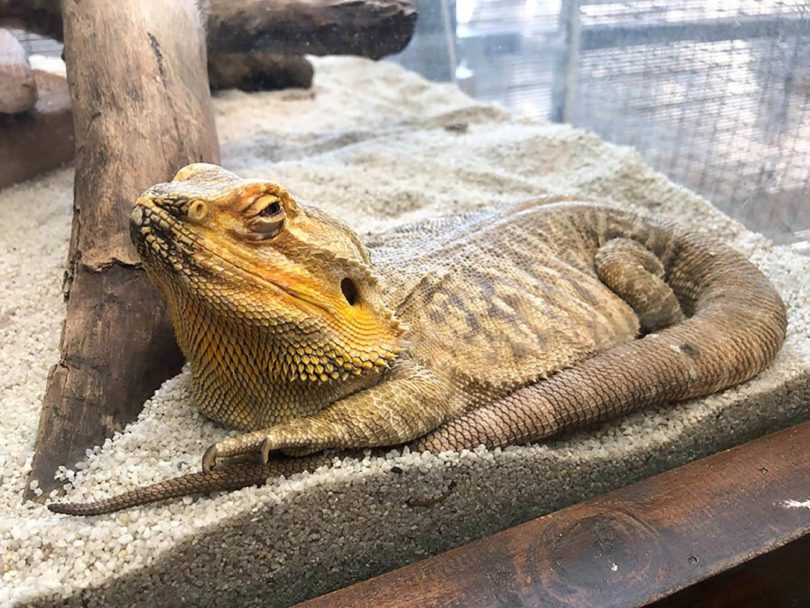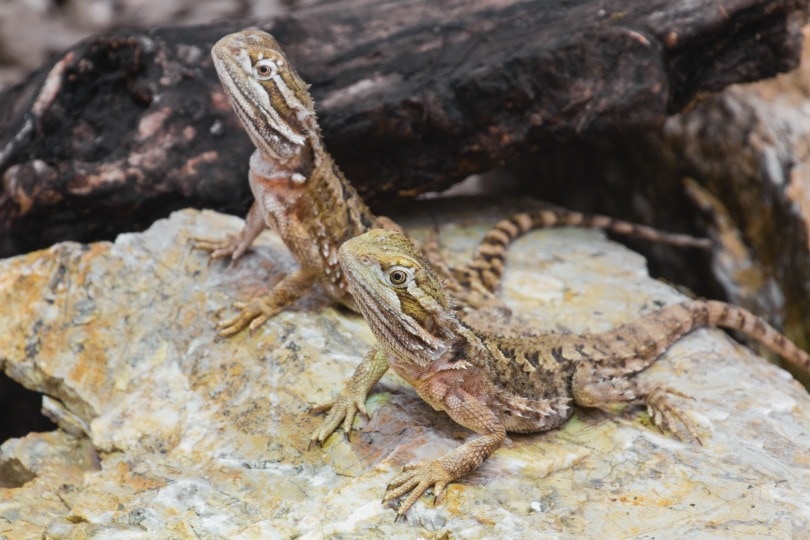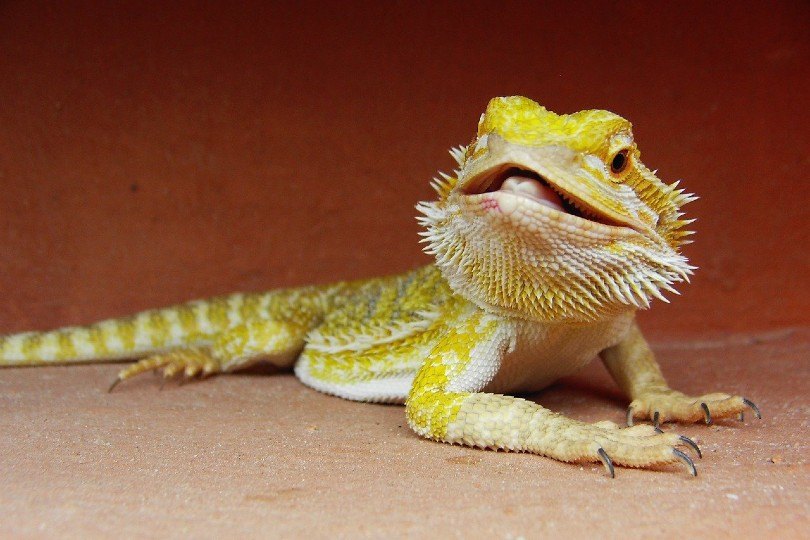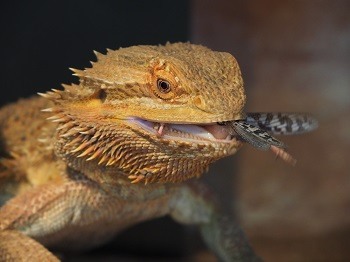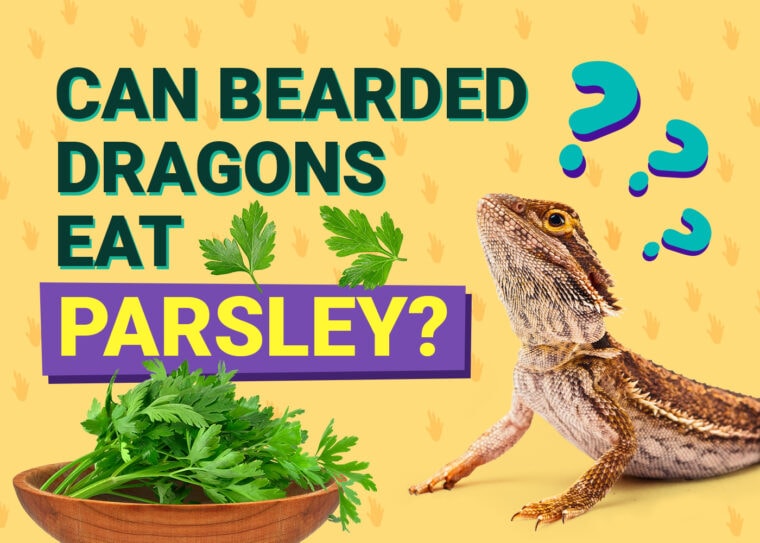
Bearded dragons are popular pets with a varied diet. Parsley is a common herb and is found in many homes, often growing on the window or in the garden. It’s common to wonder if it’s okay to give your pet dragon one sprig of this nutritious herb. The answer is yes, your bearded dragon can eat parsley, but there are concerns about giving them too much, so join us while we look at the pros and cons of feeding parsley to your pet.

The Benefits of Parsley
Parsley offers several benefits to bearded dragons. Vegetables should make up a considerable bulk of a bearded dragon’s diet, particularly if they are an adult. Parsley is a readily available, safe-to-consume vegetable that can be a fantastic addition to your bearded dragon’s salad mix.
The chief benefit of parsley is that it contains an excellent ratio of calcium to phosphorus. Healthy adult bearded dragons require a calcium:phosphorus ratio of anywhere from 1.5:1 to 2:1 (roughly twice as much calcium as phosphorus).
Parsley has a great calcium-to-phosphorus ratio at 3.2:1, with very few vegetables boasting better. The higher ratio makes parsley particularly desirable for females that are breeding, as their calcium requirements are higher.

Potential Risks of Parsley
While most experts consider parsley a suitable food for the bearded dragon, there are naturally occurring compounds in parsley that you need to watch out for, called oxalates.
Oxalates
You can find oxalates in many foods, especially greens, and they serve two purposes for plants: regulating their own internal mineral content and helping defend against predators. They are sometimes referred to as oxalic acid.
Parsley contains more oxalates than many other foods that people commonly give to bearded dragons:
| Food | Oxalates per 100 gram (mg) |
| Parsley | 1.70 |
| Spinach | 0.97 |
| Chives | 1.48 |
| Carrot | 0.50 |
| Asparagus | 0.13 |
The presence of oxalates is a considerable drawback for foods that are high in calcium (which bearded dragons need), such as parsley. Within the body, oxalates bind to minerals like calcium in the kidneys and can form kidney stones. The deprivation of calcium may also lead to metabolic bone disease. The risk is considerably higher in juveniles but can happen in adult bearded dragons too.
That said, it is worth noting that this risk is only a possibility if your bearded dragon is offered nothing but parsley as their sole source of vegetables for a prolonged period of time. The risk of metabolic bone disease is substantially reduced if your bearded dragon is offered a healthy diet with a high variety of safe-to-consume vegetables. For the most part, when portioned correctly, parsley is an acceptable vegetable for bearded dragons.

How Can I Feed Parsley to My Bearded Dragon?
As far as frequency is concerned, when portioned properly and served as a part of a salad of high variety, a sprig or two of parsley can be served daily to healthy adult bearded dragons.
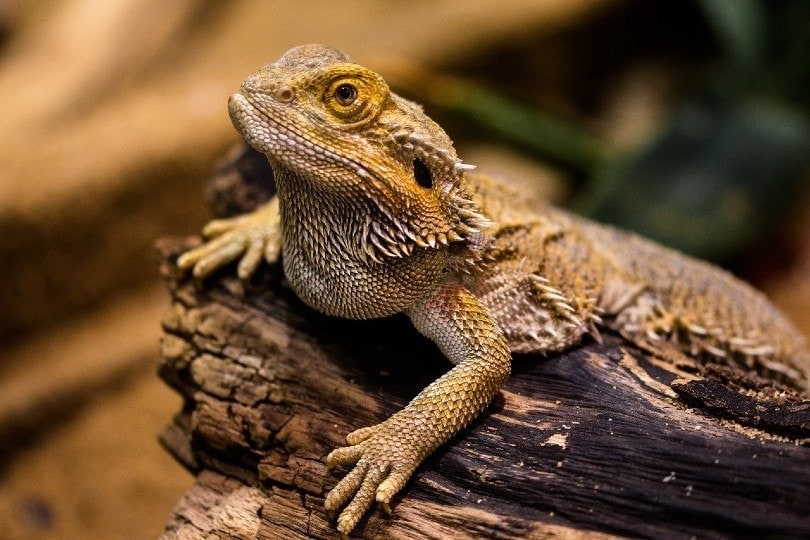

Final Thoughts
Parsley is safe for bearded dragons to consume and can be incorporated into their diet regularly. It has several nutritional benefits for these reptiles, including an excellent calcium-to-phosphorus ratio.
The presence of oxalates in parsley does warrant concern, though, and extra precaution should be taken to ensure that it isn’t the sole vegetable offered to your bearded dragon. Their diet should be high in variety and incorporate many different vegetables, safe fruits, and prey.
If you’re in doubt about your bearded dragon’s nutritional welfare, talk to your veterinarian.
See also:
Featured Image Credit: restyledliving, Pixabay

